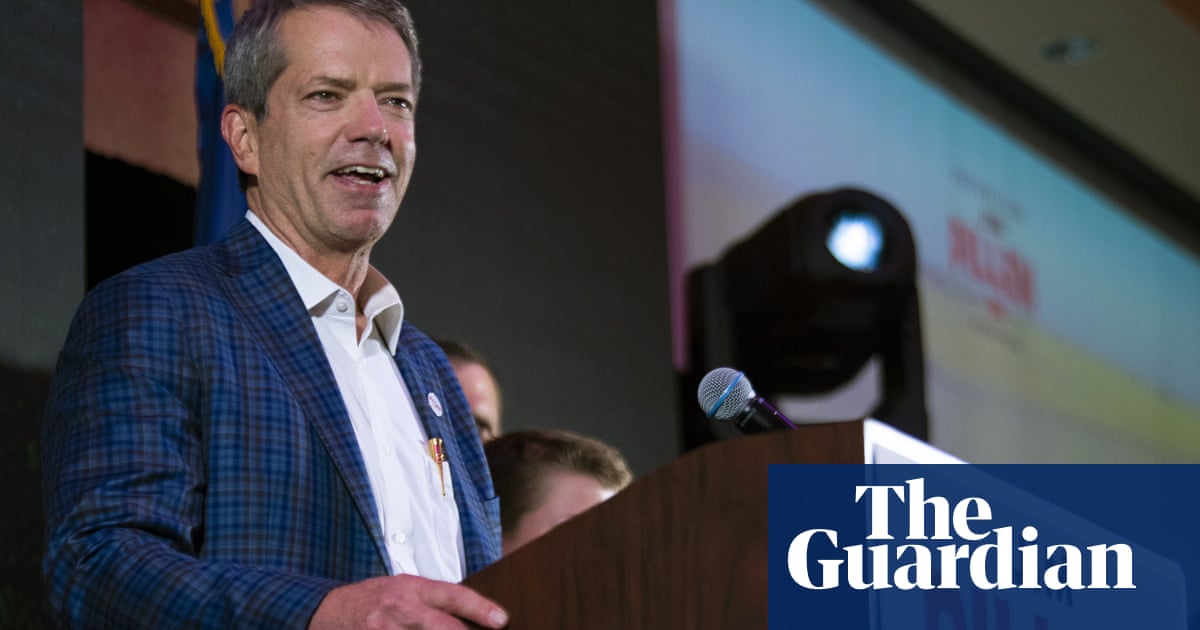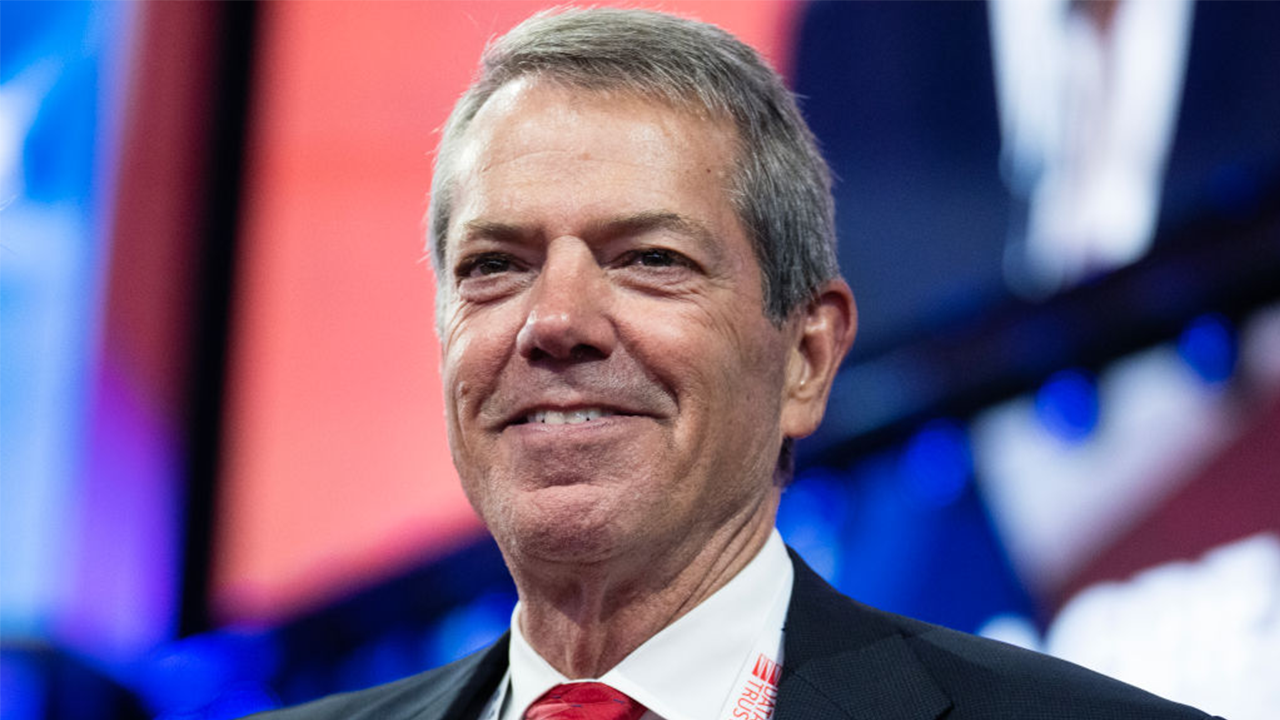World
Russia-Ukraine war: List of key events, day 505
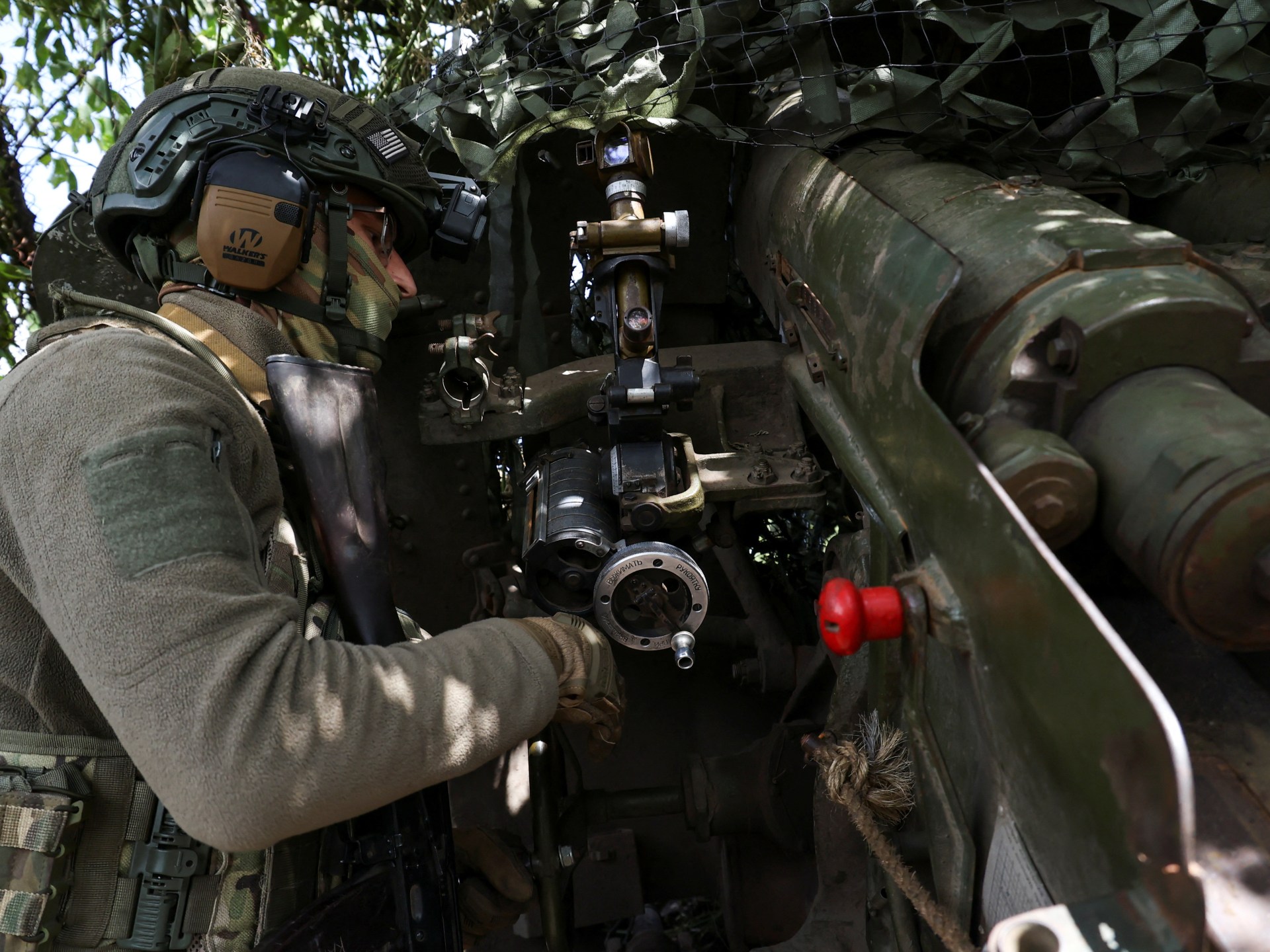
As the conflict enters its 505th day, these are the main developments.
Here is the situation on Thursday, July 13, 2023.
Fighting
- Moscow launched a wave of drone attacks on Kyiv for a third night, according to Ukraine military officials. The military said 11 of the 15 drones were destroyed. Two people were hurt in a fire caused by the attack.
- Zaporizhia regional governor Yuriy Malashko said 18 people, including six children, were injured in a Russian attack on a residential area in the southeastern city of Zaporizhzhia.
- Kherson region governor Oleksandr Prokudin said an 81-year-old man was killed and his 82-year-old wife wounded after Russia shelled the southern city of Kherson.
- Ukraine’s military said Russian forces carried out 65 air strikes and fired at least 71 times from heavy weapon rocket systems at Ukrainian troop positions and populated areas along the front lines over the previous 24 hours.
- Andriy Kovaliov, a spokesperson for the armed forces general staff, said Ukrainian forces “had success in some places” amid fierce fighting on the front line south of Bakhmut. He said the Russians were putting up strong resistance, moving units and troops and deploying reserves. He did not say how much ground Ukraine had gained.
NATO Summit and diplomacy
- The Group of Seven (G7) signed a new framework to provide long-term, bilateral security commitments for Ukraine. The measures cover areas including modern advanced military equipment, training, intelligence sharing and cyber defence. Kremlin spokesman Dmitry Peskov said the agreement was “potentially very dangerous“.
- Ukrainian President Volodymyr Zelenskyy hailed defence packages announced by NATO and the G7 at the security alliance’s annual summit, but said an invitation to join NATO “would have been ideal”. At a joint press conference with Zelenskyy, NATO chief Jens Stoltenberg said “Ukraine is now closer to NATO than ever before”.
- Zelenskyy met United States President Joe Biden on the sidelines of the summit in Lithuania and said the two had “a very good, powerful meeting” that was “at least twice as long as planned, and as meaningful as it needed to be”.
- Zelenskyy said the NATO-Ukraine Council established by NATO could give his country “institutional clarity” as part of Kyiv’s path towards NATO membership. Writing on Twitter, he said it was “important” that the council “be an instrument of integration, not just partnership”.
- US President Joe Biden accused Russian President Vladimir Putin of having a “craven lust for land and power” and promised that the security alliance would not falter in supporting Ukraine against Russian aggression. Putin, he said, had underestimated NATO. “He thought NATO would break. He thought our unity would shatter at the first testing. He thought democratic leaders would be weak. But he thought wrong,” Biden said at the end of the two-day summit.
- Stoltenberg said the “biggest risk” in the Ukraine war was a victory for Putin, who sent Russian troops into Ukraine in February 2022. “Ukraine has the right to choose its own path,” Stoltenberg said, adding that “it is not for Moscow to decide”.
- Dmitry Medvedev, the deputy secretary of Russia’s powerful Security Council, said NATO’s increased assistance for Ukraine brought the threat of a third world war closer, and that Russia would not be deterred from achieving its goals in Ukraine.
- Ukraine’s Defence Minister Oleksii Reznikov said Sweden and Ukraine signed an agreement to cooperate on defence procurement and for the exchange of classified information.
- Russia’s state news agency TASS reported that Russian foreign intelligence chief Sergey Naryshkin held a phone call with his CIA counterpart William Burns in late June to discuss “what to do with Ukraine”. There was a possibility the two men might meet in person, TASS said, citing Naryshkin.
- The Kremlin said a visit by Putin to China was on the agenda, adding the date of the trip would be announced when it is finalised. China’s President Xi Jinping travelled to Moscow in March.
- UN Secretary General Antonio Guterres sent Putin a letter on Tuesday proposing a way forward to further facilitate Russian food and fertiliser exports and ensure the continued Black Sea shipments of Ukrainian grain. The existing deal, brokered by the United Nations and Turkey, is due to expire on Monday.
Weapons
- Zelenskyy announced Australia would give Ukraine 30 bushmaster armoured vehicles as part of a new defence package.
- Zelenskyy said that Germany would supply additional Patriot launchers and missiles to Ukraine. “This is very important for protecting life in Ukraine from Russian terror!” he said on the Telegram messaging platform.
- The British government said it would provide Ukraine with more than 70 combat and logistical vehicles, thousands of rounds of ammunition for Challenger 2 tanks, and a 50-million-pound ($64.9m) support package for equipment repair.
- UK Defence Secretary Ben Wallace said Kyiv could express more “gratitude” to its allies for their support in the face of Russia’s invasion, given that some are giving up their own stocks to supply Ukraine. Wallace said after he received a list of weapons requests from Kyiv he had told officials: “I am not Amazon”.
- Biden’s nominee to become the US Army’s chief of staff, General Randy George, told a Senate committee that Ukraine would benefit from the US provision of ATACM long-range missiles. George said the Army Tactical Missile System would give Ukraine the ability to attack “attack deeper targets”.
Wagner mutiny fallout
- Russia’s Ministry of Defence said the Wagner mercenary group, which staged a brief mutiny last month, is completing the handover of its weapons. In a statement accompanied by a video showing tanks, rockets and other heavy weapons, the ministry said Wagner had transferred more than 2,000 pieces of equipment and over 2,500 tonnes of ammunition.
- General Sergei Surovikin, a deputy commander of Russia’s military operations in Ukraine, is “currently resting”, according to Andrei Kartapolov, head of the State Duma Defence Committee. Surovikin has not been seen in public since the Wagner mutiny, and there have been unconfirmed reports that he had been detained for questioning.
- The UK’s defence ministry said that Russia’s Chief of the General Staff Valery Gerasimov made his first TV appearance since the mutiny. “Gerasimov was seen being briefed by video link by Russian Aerospace Forces Chief of Staff Colonel-General Viktor Afzalov,” it said.
- The Kremlin’s Peskov dismissed a claim by Ukrainian military intelligence that Wagner soldiers intended to acquire nuclear devices during their failed mutiny as “misinformation”. His comments followed a Reuters news agency report citing Ukraine’s military intelligence chief, Kyrylo Budanov, saying Wagner fighters reached a nuclear base – known as Voronezh-45 – in an attempt to obtain small Soviet-era nuclear devices.

World
What a merger between Nissan and Honda means for the automakers and the industry
BANGKOK (AP) — Japanese automakers Honda and Nissan will attempt to merge and create the world’s third-largest automaker by sales as the industry undergoes dramatic changes in its transition away from fossil fuels.
The two companies said they had signed a memorandum of understanding on Monday and that smaller Nissan alliance member Mitsubishi Motors also had agreed to join the talks on integrating their businesses. Honda will initially lead the new management, retaining the principles and brands of each company.
Following is a quick look at what a combined Honda and Nissan would mean for the companies, and for the auto industry.
An industry shakeup
The ascent of Chinese automakers is rattling the industry at a time when manufacturers are struggling to shift from fossil fuel-driven vehicles to electrics. Relatively inexpensive EVs from China’s BYD, Great Wall and Nio are eating into the market shares of U.S. and Japanese car companies in China and elsewhere.
Japanese automakers have lagged behind big rivals in EVs and are now trying to cut costs and make up for lost time.
Nissan, Honda and Mitsubishi announced in August that they will share components for electric vehicles like batteries and jointly research software for autonomous driving to adapt better to dramatic changes in the auto industry centered around electrification. A preliminary agreement between Honda, Japan’s second-largest automaker, and Nissan, third largest, was announced in March.
A merger could result in a behemoth worth about $55 billion based on the market capitalization of all three automakers.
Joining forces would help the smaller Japanese automakers add scale to compete with Japan’s market leader Toyota Motor Corp. and with Germany’s Volkswagen AG. Toyota itself has technology partnerships with Japan’s Mazda Motor Corp. and Subaru Corp.
What would Honda need from Nissan?
Nissan has truck-based body-on-frame large SUVs such as the Armada and Infiniti QX80 that Honda doesn’t have, with large towing capacities and good off-road performance, said Sam Fiorani, vice president of AutoForecast Solutions.
Nissan also has years of experience building batteries and electric vehicles, and gas-electric hybird powertrains that could help Honda in developing its own EVs and next generation of hybrids, he said.
“Nissan does have some product segments where Honda doesn’t currently play,” that a merger or partnership could help, said Sam Abuelsamid, a Detroit-area automotive industry analsyt.
While Nissan’s electric Leaf and Ariya haven’t sold well in the U.S., they’re solid vehicles, Fiorani said. “They haven’t been resting on their laurels, and they have been developing this technology,” he said. “They have new products coming that could provide a good platform for Honda for its next generation.”
Why now?
Nissan said last month that it was slashing 9,000 jobs, or about 6% of its global work force, and reducing global production capacity by 20% after reporting a quarterly loss of 9.3 billion yen ($61 million).
Earlier this month it reshuffled its management and its chief executive, Makoto Uchida, took a 50% pay cut to take responsibility for the financial woes, saying Nissan needed to become more efficient and respond better to market tastes, rising costs and other global changes.
Fitch Ratings recently downgraded Nissan’s credit outlook to “negative,” citing worsening profitability, partly due to price cuts in the North American market. But it noted that it has a strong financial structure and solid cash reserves that amounted to 1.44 trillion yen ($9.4 billion).
Nissan’s share price has fallen to the point where it is considered something of a bargain. A report in the Japanese financial magazine Diamond said talks with Honda gained urgency after the Taiwan maker of iPhones Hon Hai Precision Industry Co., better known as Foxconn, began exploring a possible acquisition of Nissan as part of its push into the EV sector.
The company has struggled for years following a scandal that began with the arrest of its former chairman Carlos Ghosn in late 2018 on charges of fraud and misuse of company assets, allegations that he denies. He eventually was released on bail and fled to Lebanon.
Honda reported its profits slipped nearly 20% in the first half of the April-March fiscal year from a year earlier, as sales suffered in China.
More headwinds
Toyota made 11.5 million vehicles in 2023, while Honda rolled out 4 million and Nissan produced 3.4 million. Mitsubishi Motors made just over 1 million. Even after a merger Toyota would remain the leading Japanese automaker.
All the global automakers are facing potential shocks if President-elect Donald Trump follows through on threats to raise or impose tariffs on imports of foreign products, even from allies like Japan and neighboring countries like Canada and Mexico. Nissan is among the major car companies that have adjusted their supply chains to include vehicles assembled in Mexico.
Meanwhile, analysts say there is an “affordability shift” taking place across the industry, led by people who feel they cannot afford to pay nearly $50,000 for a new vehicle. In American, a vital market for companies like Nissan, Honda and Toyota, that’s forcing automakers to consider lower pricing, which will eat further into industry profits.
____
AP Auto Writer Tom Krisher contributed to this report from Detroit.
World
US military conducts successful airstrikes on Houthi rebel forces in Yemen
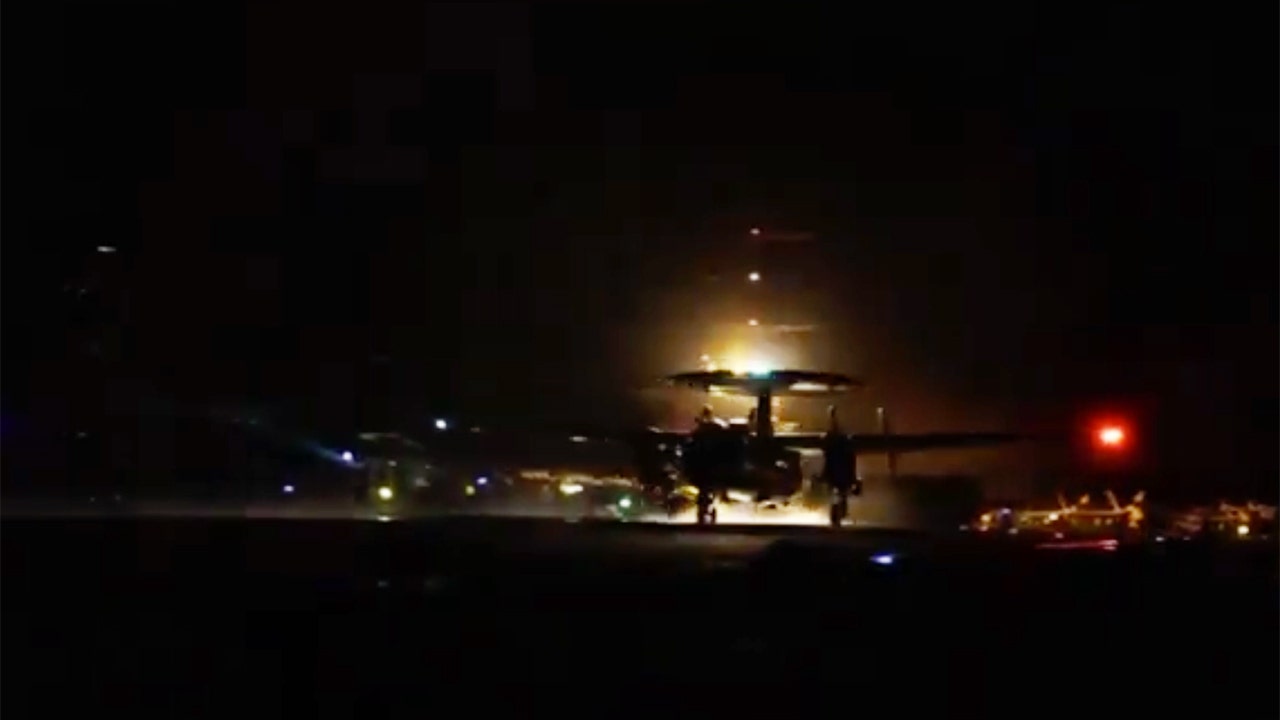
The U.S. military confirmed it conducted airstrikes in Yemen, saying it targeted a missile storage site and a command-and-control center operated by Iran-backed Houthi rebels.
U.S. Central Command (CENTCOM) announced the successful strikes in a release Saturday, saying they were meant to “disrupt and degrade” Houthi operations.
“CENTCOM forces conducted the deliberate strikes to disrupt and degrade Houthi operations, such as attacks against U.S. Navy warships and merchant vessels in the Southern Red Sea, Bab al-Mandeb and Gulf of Aden,” CENTCOM said in a news release.
DISAPPROVAL MOUNTS BOTH AT HOME AND ABROAD AS US AVOIDS DIRECT ACTION AGAINST HOUTHI REBELS
The U.S. military successfully conducted airstrikes in Yemen, saying it targeted a missile storage site and a command-and-control site operated by Iran-backed Houthi rebels. (CENTCOM via X)
Footage from CENTCOM showed F/A-18’s taking off. The agency said it also used assets from the Navy and the Air Force.
US NAVY SHIPS REPEL ATTACK FROM HOUTHIS IN GULF OF ADEN
“The strike reflects CENTCOM’s ongoing commitment to protect U.S. and coalition personnel, regional partners and international shipping,” it said.
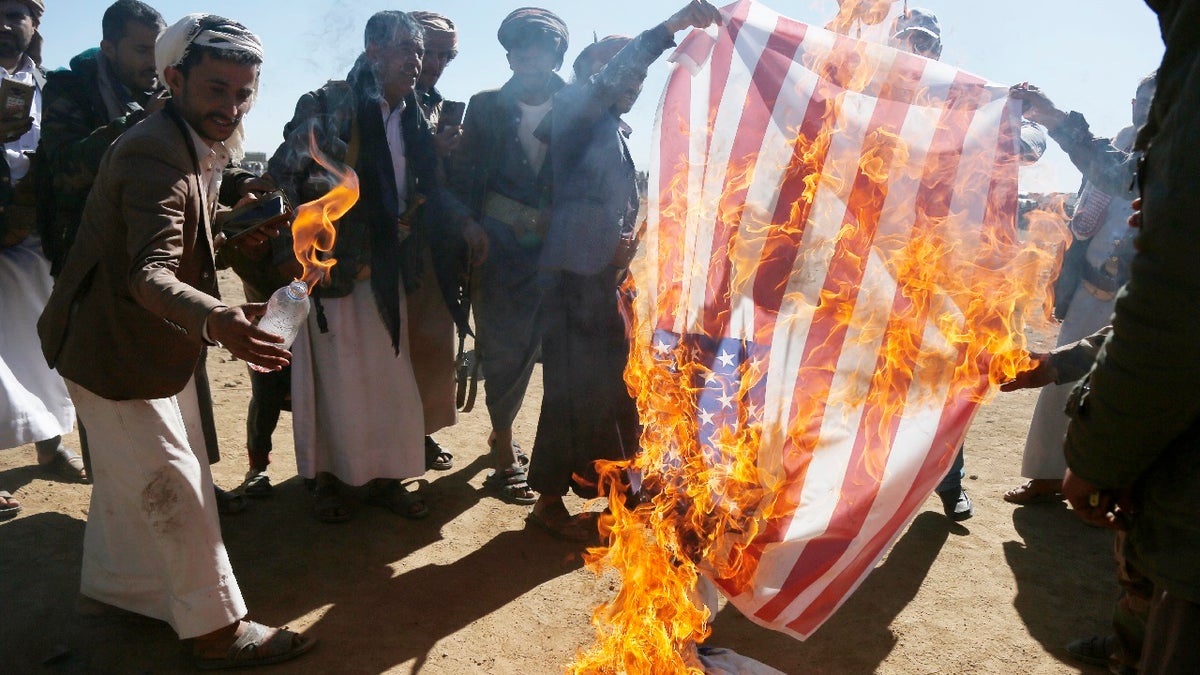
Houthi followers burn the Israeli and American flags on the outskirts of Sana’a, Yemen. (Mohammed Hamoud/Getty Images)
The attacks against shipping are ongoing, and Houthi militants have vowed to continue until Israel ends its campaign in Gaza.
The terrorist group has targeted more than 100 merchant vessels since the start of the Israel-Hamas war in October 2023.
World
Fact check: How deadly was 2024 for journalists?

An estimated 104 journalists lost their lives in 2024, with Palestine the most dangerous territory.
An estimated 104 journalists were killed worldwide over the past year, according to data shared earlier this month by the International Federation of Journalists (IFJ).
Another report by NGO Reporters Without Borders (RSF) puts the figure at 54, but its methodology means it only includes killings that are considered “directly related” to journalists’ professional activity.
Both organisations say that Palestine is the deadliest place on earth for journalists. More than half (55) of the 104 killings reported by IFJ were Palestinian media professionals in Gaza, while a further six were killed in Lebanon.
At least 138 journalists have been killed in Gaza since the war between Israel and Hamas broke out on 7 October 2023, making the country one of the “most dangerous in the history of modern journalism, behind Iraq, the Philippines and Mexico,” according to the IFJ.
Reporters without Borders has described the number of killings in Gaza as “an unprecedented bloodbath”.
Israel firmly denies it has intentionally targeted any journalists, but has recognised some that have been killed in its airstrikes on Gaza.
The 104 total killings reported by the IFJ is a slight decrease on the 129 they reported on in 2023, which is considered the bloodiest year for journalists since 1990.
How do other world regions fare?
Asia Pacific is the world’s second most dangerous region for journalists, after the Middle East, according to the IFJ.
It recorded 20 deaths in the region in 2024, of which 70% happened in the southern Asian countries of Pakistan, Bangladesh and India.
The region has seen an “upsurge” in violence, according to the IFJ, with deaths increasing sharply from the 12 recorded in 2023.
Africa was the third most dangerous region for journalists at eight deaths, five of them in war-torn Sudan.
The number of journalists killed in south, central and north America has dropped sharply over the past two years, from 30 in 2022 to six in 2023, and another six in 2024. Mexico, considered to be one of the deadliest places in the world to do journalism, continues to see “threats, intimidation, kidnappings and murders” against journalists, particularly due to reporting on drug trafficking.
Number of journalists behind bars on the rise
According to IFJ estimates on 10 December, there were 520 journalists in prison across the world, considerably more than in 2023 (427) and 2022 (375).
China, including Hong Kong, accounts for most of journalists behind bars, followed by Israel and Myanmar.
The IFJ says the figures show how “fragile” the independent press is and how “risky and dangerous” the profession of journalism has become.
-

 Politics1 week ago
Politics1 week agoCanadian premier threatens to cut off energy imports to US if Trump imposes tariff on country
-
/cdn.vox-cdn.com/uploads/chorus_asset/file/25789444/1258459915.jpg)
/cdn.vox-cdn.com/uploads/chorus_asset/file/25789444/1258459915.jpg) Technology1 week ago
Technology1 week agoOpenAI cofounder Ilya Sutskever says the way AI is built is about to change
-

 Politics1 week ago
Politics1 week agoU.S. Supreme Court will decide if oil industry may sue to block California's zero-emissions goal
-
/cdn.vox-cdn.com/uploads/chorus_asset/file/25546252/STK169_Mark_Zuckerburg_CVIRGINIA_D.jpg)
/cdn.vox-cdn.com/uploads/chorus_asset/file/25546252/STK169_Mark_Zuckerburg_CVIRGINIA_D.jpg) Technology1 week ago
Technology1 week agoMeta asks the US government to block OpenAI’s switch to a for-profit
-

 Business1 week ago
Business1 week agoFreddie Freeman's World Series walk-off grand slam baseball sells at auction for $1.56 million
-
/cdn.vox-cdn.com/uploads/chorus_asset/file/23951353/STK043_VRG_Illo_N_Barclay_3_Meta.jpg)
/cdn.vox-cdn.com/uploads/chorus_asset/file/23951353/STK043_VRG_Illo_N_Barclay_3_Meta.jpg) Technology1 week ago
Technology1 week agoMeta’s Instagram boss: who posted something matters more in the AI age
-
News1 week ago
East’s wintry mix could make travel dicey. And yes, that was a tornado in Calif.
-
/cdn.vox-cdn.com/uploads/chorus_asset/file/24924653/236780_Google_AntiTrust_Trial_Custom_Art_CVirginia__0003_1.png)
/cdn.vox-cdn.com/uploads/chorus_asset/file/24924653/236780_Google_AntiTrust_Trial_Custom_Art_CVirginia__0003_1.png) Technology2 days ago
Technology2 days agoGoogle’s counteroffer to the government trying to break it up is unbundling Android apps




